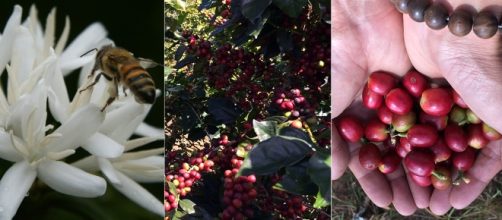In a few years’ time, coffee lovers across the globe may find it difficult to satisfy their caffeine cravings. Scientists warn that with the current global warming advancement rate, Coffee growing areas in the Latin American region may be greatly reduced by 2050.
Coffee growing regions are threatened by Global Warming
A new study reveals that climate change is posing a great threat to the coffee growing areas in Latin America. As reported by RD Mag, researchers hailing from the University Of Vermont conducted a study to determine the impact of the climate change on the growth of coffee.
The study also considered the effect of the global phenomenon on the behavior of bees that assist the growth by pollination.
Coffee is considered one of the most valuable commodities. According to the director of the University of Vermont’s Gund Institute for Environment Taylor Ricketts, its production is highly dependent on favorable climate and pollinating bees. The director, who is also the co-author of the study emphasized that the current climate change scenario is a huge blow to the coffee production industry in the near future.
According to Ricketts, research forecasts yielded a huge loss of coffee regions which are far greater than initial forecasts of previous global assessments. The famous coffee-rich nations of the world such as Venezuela, Nicaragua, and Honduras are particularly at great risk.
The director added that the decline of production will also have a great impact on the livelihoods of rural coffee growers. The study concludes that by the year 2050, the coffee growing regions in Latin America will be reduced by a whopping 88 percent.
Fortunately, the research also predicted that some regions will continue to sustain the suitable temperature. A slight increase in suitability is expected in the mountains of Mexico, Colombia, Costa Rica and Guatemala.
Coffee plantations can still be saved
Ricketts and his team conducted the study by analyzing field data with the help of spatial analysis and advanced modeling processes. To combat the ill-effects of global warming to the world’s coffee-production industry, the group came up with several strategies to improve coffee bee pollination and growth.
One method involves support to growing bee habitats that thrive near coffee farms. For areas with a healthy bee population that will suffer from the decrease of coffee growing suitability, the research strongly suggests adherence to farming practices that reduce climate change impacts. Overall, forest protection and conservation of the trees and plants will also support coffee pollinators. According to CBC, another option is to grow heat-tolerant varieties of coffee. Ricketts believes that the only way out is to think of ways to adapt.


